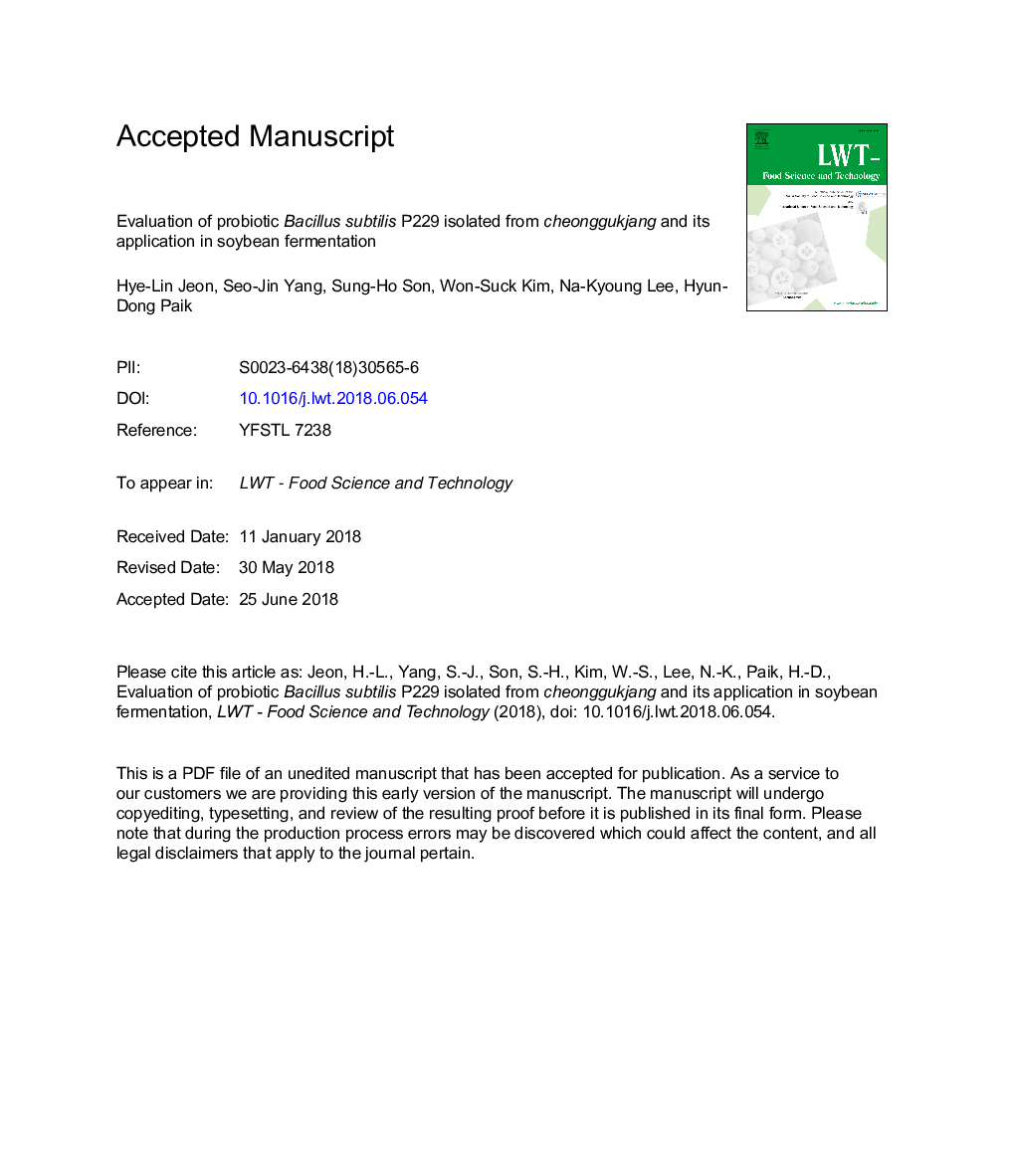| Article ID | Journal | Published Year | Pages | File Type |
|---|---|---|---|---|
| 8890051 | LWT - Food Science and Technology | 2018 | 29 Pages |
Abstract
Bacillus subtilis P229 was isolated from cheonggukjang, a Korean soybean fermented food, and its probiotic properties and utility in starter cultures for soybean fermentation were investigated. B. subtilis P229 spores were stable when exposed to simulated gastric and bile conditions. B. subtilis P229 vegetative cells did not produce β-glucuronidase, were sufficiently susceptible to antibiotics, and adhered strongly to human intestinal epithelial cells. Moreover, this strain did not induce hemolysis or carry enterotoxin genes. B. subtilis P229 showed high levels of autoaggregation, and its coaggregation with pathogens depended on the species involved. It did not produce hazardous biogenic amines from histidine and ornithine. B. subtilis P229-fermented soybean extracts were prepared using 70% ethanol. Fermented-soybean extracts demonstrated greater antioxidant effects and total phenolic content than unfermented soybean extracts. These results suggest that B. subtilis P229 isolated from cheonggukjang shows potential as a probiotic and as a component of starter cultures for fermented soybean foods.
Related Topics
Life Sciences
Agricultural and Biological Sciences
Food Science
Authors
Hye-Lin Jeon, Seo-Jin Yang, Sung-Ho Son, Won-Suck Kim, Na-Kyoung Lee, Hyun-Dong Paik,
